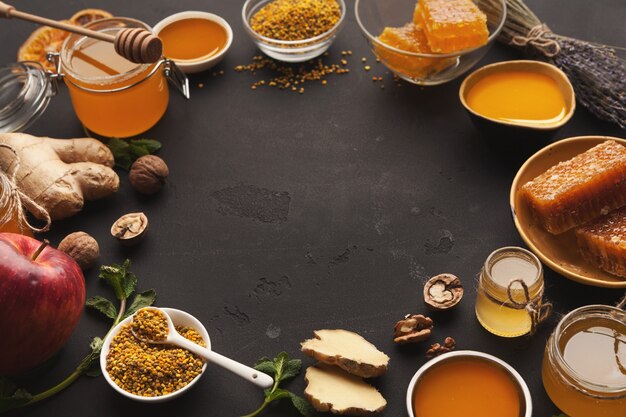Ask Ayurvedic doctor a question and get a consultation online on the problem of your concern in a free or paid mode. More than 2,000 experienced doctors work and wait for your questions on our site and help users to solve their health problems every day.
Ayurvedic Medicine for Adenoids – Natural Remedies for Adenoid Health

Introduction to Ayurvedic Medicine for Adenoids
Adenoids, also known as pharyngeal tonsils, are lymphoid tissues located behind the nasal cavity. They play a crucial role in the immune system, especially in children, by trapping pathogens and preventing infections. However, when adenoids become enlarged or chronically inflamed, they can lead to breathing difficulties, recurrent infections, and other health issues. Ayurvedic medicine offers a holistic approach to managing adenoid-related problems by addressing the root causes, balancing the body's doshas, and enhancing overall respiratory health. By incorporating Ayurvedic remedies, dietary adjustments, and lifestyle modifications, individuals can find natural relief from adenoid discomfort and improve their quality of life.
Don't wait or self medicate. Start chat with Doctor NOW
Historical Roots & Ayurvedic Significance
Ayurveda, the ancient system of medicine from India, emphasizes the balance of the three doshas—Vata, Pitta, and Kapha—for maintaining health and preventing disease. Adenoid-related issues are primarily associated with an imbalance in Kapha dosha, which governs structure and lubrication in the body. According to Ayurvedic texts, excessive Kapha can lead to the accumulation of mucus and the enlargement of lymphoid tissues like the adenoids. Ayurvedic treatments focus on reducing Kapha imbalance, eliminating toxins (ama), and strengthening the immune system to prevent recurrent infections and inflammation of the adenoids.
Key Components & Therapeutic Benefits
1. Herbal Composition
Ayurvedic management of adenoids involves a combination of herbs known for their anti-inflammatory, immune-boosting, and mucus-reducing properties:
- Tulsi (Holy Basil, Ocimum sanctum): Enhances immunity, reduces inflammation, and helps in managing respiratory infections.
- Licorice Root (Glycyrrhiza glabra): Soothes irritated mucous membranes and reduces swelling.
- Turmeric (Curcuma longa): Contains curcumin, a potent anti-inflammatory and antioxidant agent.
- Neem (Azadirachta indica): Possesses antimicrobial properties that help in fighting infections.
- Triphala: A blend of three fruits that detoxifies the body and supports digestion, indirectly aiding in immune health.
- Honey: Acts as a natural sweetener and carrier, enhancing the absorption and efficacy of the herbs.
2. Detoxification & Dosha Balancing
Excessive Kapha leads to the accumulation of mucus and swelling of the adenoids. Ayurvedic treatments aim to detoxify the body through Panchakarma therapies such as Virechana (therapeutic purgation) and Nasya (nasal administration of herbal oils). These procedures help eliminate ama, reduce Kapha imbalance, and improve respiratory function. Additionally, dietary modifications that favor Vata and reduce Kapha can further aid in maintaining doshic balance.
3. Applications in Respiratory & Immune Health
Ayurvedic remedies for adenoids target both the underlying causes and the symptoms associated with adenoid enlargement:
- Reducing Inflammation: Herbs like Turmeric and Tulsi help in reducing the inflammation of adenoids, alleviating breathing difficulties and discomfort.
- Boosting Immunity: Neem and Tulsi enhance the immune system, preventing recurrent infections that can cause adenoid enlargement.
- Mucus Reduction: Licorice Root and Turmeric aid in thinning and expelling excess mucus, reducing the burden on the adenoids.
- Soothing Irritation: Honey and Licorice Root soothe irritated tissues, providing relief from sore throats and discomfort.
4. Integration with Ayurvedic Therapies
Integrating herbal treatments with Ayurvedic therapies enhances the effectiveness of managing adenoid-related issues:
- Panchakarma: Detoxification procedures like Virechana and Nasya help eliminate toxins, balance doshas, and improve respiratory health.
- Abhyanga (Oil Massage): Promotes circulation, reduces Kapha imbalance, and soothes overall body tension.
- Swedana (Herbal Steam Therapy): Enhances mucus clearance, reduces congestion, and improves breathing.
- Yoga & Pranayama: Incorporates breathing exercises that strengthen the respiratory system and reduce stress, which can exacerbate Kapha imbalance.
How Ayurvedic Management Works: The Science Behind the Approach
Ayurvedic management of adenoids operates on the principle of restoring doshic balance and eliminating ama from the body. The active compounds in herbs like Tulsi and Turmeric reduce inflammation and oxidative stress, protecting the adenoids from chronic irritation. Neem's antimicrobial properties combat infections that contribute to adenoid enlargement. Detoxification therapies remove ama, enhancing the body's ability to maintain a healthy immune response and preventing the recurrence of infections. By improving respiratory function and reducing mucus production, Ayurveda provides a comprehensive approach to managing adenoid-related issues naturally and effectively.
Choosing the Right Ayurvedic Remedies & Guidance
When selecting Ayurvedic remedies for adenoids, consider the following to ensure efficacy and safety:
- Consult Certified Ayurvedic Practitioners: Personalized treatment plans based on your Prakriti (constitution) and specific health needs ensure effective management.
- Ensure High-Quality Herbs: Opt for formulations made from organic and authentic herbs to maximize therapeutic benefits and minimize contaminants.
- Source from Reputable Vendors: Purchase Ayurvedic supplements from trusted pharmacies or certified practitioners to guarantee product quality and proper formulation.
- Consider Comprehensive Approaches: Combine herbal treatments with dietary and lifestyle modifications for a holistic management plan that supports overall health and well-being.
Recommended Dosage & How to Use Ayurvedic Remedies for Adenoids
The appropriate dosage of Ayurvedic remedies varies based on individual health conditions and constitutional types. Generally, the guidelines are as follows:
- Herbal Supplements:
- Tulsi: 1-2 teaspoons of Tulsi tea or capsules as recommended by a practitioner.
- Licorice Root: 1 teaspoon of powder mixed with honey or as capsules.
- Turmeric: 1 teaspoon of turmeric powder daily or in capsule form.
- Neem: 500 mg capsules taken twice daily or Neem juice as directed.
- Triphala: 1 teaspoon of Triphala powder mixed with warm water before bedtime.
- Panchakarma Therapies:
- Undergo Virechana and Nasya as prescribed by an Ayurvedic practitioner, typically performed in cycles.
- Consumption: Herbal supplements can be taken with warm water or as directed by a practitioner. Always follow the recommended dosage and consult with a healthcare provider before starting any new treatment.
- Dietary & Lifestyle Adjustments: Incorporate a balanced diet that reduces Kapha, engage in regular physical activity, and practice stress-reducing techniques like yoga and meditation.
Potential Side Effects & Precautions
While Ayurvedic remedies are generally safe when used appropriately, consider the following precautions:
- Digestive Sensitivity: Some herbs may cause mild gastrointestinal discomfort. Start with lower doses to assess tolerance.
- Pregnancy & Nursing: Pregnant or breastfeeding women should consult an Ayurvedic practitioner before using herbal supplements.
- Allergic Reactions: Discontinue use if any allergic reactions or adverse symptoms occur and seek medical advice.
- Interactions with Medications: Inform your healthcare provider about any Ayurvedic treatments you are undergoing to avoid potential interactions with other medications.
- Quality Control: Ensure that herbs are sourced from reputable vendors to prevent contamination with heavy metals or adulterants.
Frequently Asked Questions (FAQ)
What are adenoids and why are they important?
Adenoids are lymphoid tissues located behind the nasal cavity. They play a crucial role in the immune system by trapping pathogens and preventing infections, especially in children. However, when adenoids become enlarged or chronically inflamed, they can cause breathing difficulties and recurrent infections.
How does Ayurveda treat adenoids?
Ayurveda treats adenoids by balancing the doshas, particularly Kapha, eliminating toxins (ama), and using a combination of anti-inflammatory and immune-boosting herbs. Treatments include herbal supplements, Panchakarma therapies, dietary modifications, and lifestyle changes to reduce inflammation and support respiratory health.
What are the common Ayurvedic herbs used for adenoids?
Common Ayurvedic herbs for adenoids include Tulsi (Holy Basil), Licorice Root, Turmeric, Neem, and Triphala. These herbs possess anti-inflammatory, antimicrobial, and mucus-reducing properties that help manage adenoid-related issues.
Can dietary changes help manage adenoids in Ayurveda?
Yes, Ayurveda emphasizes a balanced diet tailored to reduce Kapha. This includes avoiding heavy, oily, and cold foods while incorporating warm, light, and spicy foods that help in reducing mucus production and inflammation.
What Ayurvedic therapies are recommended for adenoids?
Recommended therapies include Panchakarma detoxification procedures like Virechana (therapeutic purgation) and Nasya (nasal administration of herbal oils), Abhyanga (oil massage), Swedana (herbal steam therapy), and breathing exercises through Yoga and Pranayama to enhance respiratory function.
How long does it take to see results from Ayurvedic treatments for adenoids?
The timeframe varies based on individual health conditions and adherence to the treatment plan. Some individuals may notice improvements within a few weeks, while others might require several months for significant changes. Consistency and personalized care are key to effective management.
Are there any lifestyle modifications recommended in Ayurveda for adenoids?
Yes, Ayurveda recommends regular physical activity, stress management techniques like yoga and meditation, adequate sleep, and maintaining a balanced lifestyle to support overall health and manage adenoid-related issues effectively.
Conclusion & Expert Insights
Adenoid-related issues can significantly impact respiratory health and overall quality of life, especially in children. Ayurvedic medicine offers a comprehensive and natural approach to managing adenoids by addressing the root causes, balancing doshas, and enhancing the body's innate healing capabilities. Through the use of potent herbs, detoxification therapies, and lifestyle modifications, Ayurveda provides effective relief from adenoid discomfort and promotes long-term respiratory wellness. Consulting with qualified Ayurvedic practitioners ensures that treatments are tailored to individual needs, fostering sustained health and harmony within the body.
References & Further Reading
- Sharma, P.V. (1995). Ayurvedic Healing: A Comprehensive Guide. Motilal Banarsidass Publishers.
- Lad, V. (2002). Ayurveda: The Science of Self-Healing. Lotus Press.
- National Institute of Ayurveda:
- Chopra, D. (2006). Perfect Health: The Complete Mind/Body Guide. Harmony Books.
- Singh, P., & Aggarwal, B.B. (1995). "The Role of Ayurvedic Rasayanas in Aging." Ayu, 16(3), 207-210.
- National Ayurvedic Medical Association. (n.d.). Ayurvedic Treatments for Respiratory Health.
- Kumar, S., & Malik, A. (2019). "Effectiveness of Ayurvedic Herbs in Managing Adenoid Hypertrophy." Journal of Ayurveda and Integrative Medicine, 10(2), 123-130. https://doi.org/10.1016/j.jaim.2018.10.005



